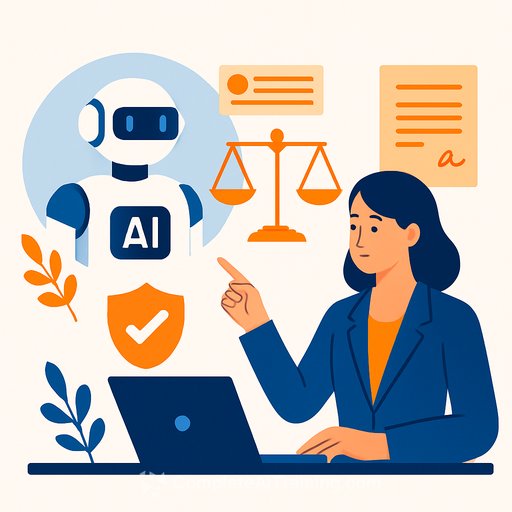Why Legal Professionals Need Purpose-Built Agentic AI
The legal sector is flooded with AI tools claiming to transform how law firms and departments function. Yet, a key difference exists between consumer-grade chatbots and professional agentic AI systems. This difference can decide whether an AI investment truly adds value or simply offers sophisticated conversation.
For legal professionals handling complex cases, extensive document reviews, and critical research, understanding this distinction is essential. Legal work demands AI built for precision, transparency, and accountability—not just engaging chat experiences.
Technical Foundations: Architecture Shapes Capability
Consumer and professional AI systems differ fundamentally in architecture and approach to accuracy. Consumer tools like ChatGPT draw from broad web data, prioritizing conversational flow over verified accuracy. In contrast, professional-grade agentic AI leverages domain-specific data, incorporates verification processes, and delivers reliable, precise outputs.
This distinction matters deeply in law. While consumer AI might provide general answers, it can include outdated or incorrect information. Legal professionals require AI that understands binding precedent, jurisdictional nuances, and legal reasoning to avoid costly errors.
AI Agents vs. Traditional Chatbots
An AI agent is a program that interacts with its environment, learns, adapts, and takes goal-directed actions. Traditional chatbots, however, mainly process natural language based on predefined scripts or rules, lacking autonomy and adaptability.
Modern AI chatbots have integrated some agent-like features, but many legal AI tools remain limited to chatbot frameworks. True agentic AI offers complex workflows and decision-making capabilities essential for legal tasks.
Why Domain Specificity Matters in Legal AI
Legal work requires deep knowledge of terminology, procedures, and analytical frameworks that general AI cannot deliver. Tasks like contract review demand understanding implied terms, compliance requirements, and risk factors.
Purpose-built legal AI integrates specialized databases and applies legal reasoning frameworks, enabling accurate research across jurisdictions and case law hierarchies. Generic tools cannot replicate this level of domain expertise.
Red Flags When Evaluating AI Legal Solutions
With AI products everywhere, it’s crucial to separate genuine capability from polished marketing. Here are key warning signs to avoid:
- Lack of Workflow Transparency: Systems that don't explain their reasoning or provide audit trails are unsuitable for legal work.
- Poor Verification: AI tools that can’t cross-check results with authoritative legal sources or provide citations offer little professional value.
- No Multi-Agent Architecture: Single-agent systems cannot handle complex, multi-step legal tasks requiring collaboration between research, analysis, and verification.
- Generic Outputs: Similar responses across different practice areas or jurisdictions indicate lack of specialization.
- Missing Integration: Tools that don’t connect with legal research platforms or case management systems lack access to essential data.
- Automated Decisions Without Human Oversight: Systems that exclude professional review risk accountability and increase legal risk.
How Agentic AI Supports Human Oversight and Decision-Making
True agentic AI enables legal professionals to maintain control over key decisions throughout the workflow. Unlike chatbots that generate outputs without transparency, agentic AI allows for human judgment insertion, verification, and course correction.
This ensures AI assists rather than replaces expertise. For example, when creating complex reports from large datasets, professionals can guide the AI, validate findings, and make informed choices based on verified data.
Choosing Legal AI That Supports Professional Judgment
Choosing between consumer-grade chatbots and professional agentic AI impacts your ability to leverage AI effectively. Focus on solutions that prioritize accuracy, transparency, and integration with authoritative legal databases.
Look for AI that enhances your expertise, offering clear workflows, domain-specific knowledge, and verification mechanisms. The right tool should amplify your professional judgment, not override it.
For legal professionals interested in expanding their AI knowledge and skills, exploring specialized courses can be valuable. Resources like Complete AI Training’s legal-focused courses offer practical insights tailored to legal workflows.
Your membership also unlocks:






